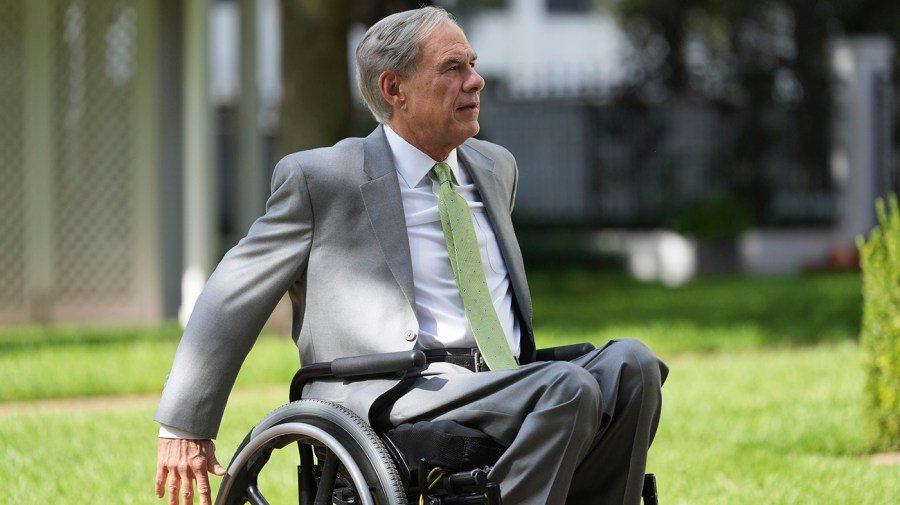
Texas Gov. Greg Abbott (R) has rattled academia and legal experts with his open declaration that his state is “targeting professors” over their personal beliefs.
While Republican governors have increasingly seen classrooms as ideological battlegrounds, Abbott’s stated position that a Texas educator should have lost his job over “ideological differences” is raising greater concern among experts, especially those who say concerning trends on First Amendment rights at universities in the state have been compounding for years and accelerated under the Trump administration.
Abbott’s post on social media was inspired by the ouster of Art Markman, a tenured psychology professor at the University of Texas, from his administrative role in academic affairs, though not apparently his teaching position.
Markman posted on LinkedIn the dismissal was due to “ideological differences” but did not further elaborate. The Hill has reached out to the university for comment.
“Univ. of Texas professor was dismissed from an administrative post overseeing university academic affairs because of ideological differences,” Abbott wrote, echoing the language of an Axios article he shared.
“Texas is targeting professors who are more focused on pushing leftist ideologies rather than preparing students to lead our nation. We must end indoctrination and return to education fundamentals at all levels of education,” he added.
Academics say they no longer know what will be permissible on Texas campuses.
“We’re losing faculty that are leaving, moving to other states because they’ve lost shared governance, or they’ve lost academic freedom, or they feel intimidated — can’t speak truth to what their knowledge is in their field. Members are joining advocacy groups left and right because they’re afraid. They’re afraid in the classroom,” said Pat Heintzelman, president of the Texas Faculty Association.
Texas has been at the forefront of efforts to revamp higher education institutions and root out topics Republicans oppose nationwide.
Diversity, equity and inclusion (DEI) offices have been banned at state universities, and a law was passed to crackdown on campus protests.
A professor at Texas A&M University was recently fired after asking a student to leave the class who challenged her teaching about gender identities, alleging the professor was breaking the law. In the ensuing controversy, the president of A&M also resigned.
“This tweet was bad, but it’s worse because of all the things that have been happening in Texas over the last, frankly, couple of years, but especially even the last few months,” said Lindsie Rank, director of Campus Rights Advocacy for the Foundation for Individual Rights and Expression.
“There have been multiple instances of Texas professors facing pushback for their speech, and so, I think, it’s kind of in some ways helpful that Abbott said out loud the part that usually is quiet,” she added. “It, I guess, reinforces, for me, what we’ve been seeing happening, which is professors on the left being targeted in Texas specifically.”
Angelo State University has sought to stay ahead of the state by banning LGBTQ content in classrooms and declaring that students can only be referred to by their legal name.
But such moves are generating their own pushback: A federal appeals court ruled in August that West Texas A&M University had violated students’ First Amendment rights by banning drag performances on its campus.
“Texas is on a pathway to becoming No. 1 in education. To reach that goal, our colleges and universities must prioritize quality education over political agendas. Public colleges and universities are subject to the laws of our state, and the Governor will ensure they adhere to those laws as they focus on cultivating our students as the best and brightest in the world,” said Andrew Mahaleris, press secretary for Abbott.
The efforts have also been useful to the Trump administration, which is pressuring schools to make institutional changes to campus culture, hiring and admissions policies and financial processes.
The University of Texas at Austin was the only one of nine schools nationwide not to respond at all publicly to the Trump administration’s recent college compact, which offered preferential funding treatment in exchange to policy changes at select universities.
The other eight universities offered the deal either rejected it outright or voiced concerns about its implications for their institutions.
“We’re at a crossroads. It’s going to take a lot of courage for people to stand up in the face that you might lose your job. Courage is what we need from the administrations and the faculty, and I think both are trying to stop it, and I think the courts hopefully will support faculty that have lost their jobs for speaking up. I expect a lot more will lose their job before it ends,” Heintzelman said.

